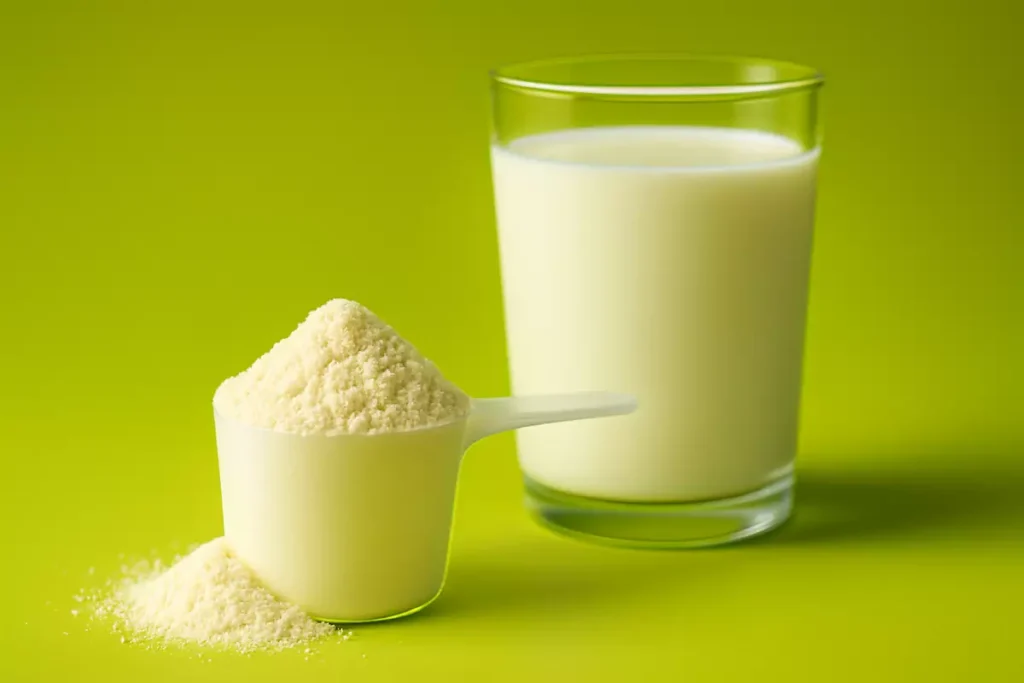Many teenagers hit the gym and wonder, “Is whey protein safe for me?”
As a fitness trainer who has coached dozens of teens, I’ve seen firsthand how whey can help young athletes build strength and recover faster—when used correctly.
This guide gives you a clear, honest answer and shows you exactly how teens can safely benefit from whey protein without risking their health.
Table of contents
Quick Answer
Parents and teens often ask me, “Is whey protein safe for teenagers?”
The short answer is yes—when used correctly and in moderation, whey protein can be safe and beneficial for teens.
I’ve personally coached over 15 teenagers in my fitness career. Many of them successfully used whey protein without any issues.
However, safety depends on proper guidance, age, and overall nutrition.
What Whey Protein Actually Is

Whey protein isn’t a magic powder or a synthetic drug.
It’s simply a high-quality protein derived from milk during the cheese-making process. It’s packed with essential amino acids that support muscle recovery, strength development, and overall health.
For teens who are training hard in sports or fitness, this extra protein can help meet daily requirements that might be difficult to reach with food alone.
If you’re curious about different options, check out best whey protein powders for beginners and learn how to mix whey protein without clumps.
Is Whey Protein Safe for Teenagers?
Based on both scientific research and my real-world coaching experience, whey protein is generally safe for teenagers aged 15 and up.
In my years of coaching, I’ve recommended it to several teens who struggled to hit their protein targets with whole foods alone.
Every single time, with proper use, it supported healthy muscle growth without harming their health.
The only minor issues I’ve seen were mild bloating or digestive discomfort in a few cases.
These were quickly fixed by switching to a whey isolate or adjusting the serving size.
You can also see how whey protein shows results in just one month when used properly.
Recommended Dosage for Teens

Teenagers usually need 1.2–1.7 grams of protein per kilogram of body weight per day depending on activity levels.
Whey protein should only fill the gap—not replace meals.
For example, a 60 kg active teen might need around 80–100 grams of protein daily.
If they already get 70 grams from food, a single 20-gram whey shake post-workout is enough.
You can also refer to this dosage guide for a 70 kg male for better understanding.
Best Times for Teenagers to Take Whey Protein
From my experience, the best time for teens to take whey protein is:
- Post-workout: Helps muscles recover and grow.
- As a snack: When they can’t get enough protein from regular meals.
One of my clients, Lucas, started taking a single whey shake after each training session.
With this simple addition, he gained 4 kg of lean muscle in 3 months while staying healthy and energetic.
To improve the experience, you can explore best whey protein mixes for taste.
Possible Risks and Precautions

Whey protein isn’t harmful when used responsibly.
Risks usually come from:
- Overconsumption: Drinking multiple shakes daily instead of eating real food.
- Allergies: Teens sensitive to lactose may experience discomfort.
- Ignoring overall diet: Supplements can’t fix poor eating habits.
That’s why I always stress: balance first, supplements second.
Also, remember to check the shelf life of whey protein after opening to avoid using expired powder.
Healthy Alternatives to Whey Protein
Not every teenager needs whey protein.
Many can meet their needs with whole foods like:
- Chicken, fish, and lean meats.
- Eggs and dairy products.
- Beans, lentils, and nuts.
I’ve had clients who made great progress simply by improving their meals—no shakes needed.
For teens looking to bulk up, it’s also useful to understand the difference between whey protein and mass gainers.
Conclusion – Trainer’s Advice
If you’re a teen or a parent wondering about whey protein, here’s my honest advice:
- Whey protein can be safe and helpful for active teens aged 15+.
- It works best as a supporting supplement, not a meal replacement.
- Whole foods should always come first.
- Start with one serving daily, post-workout, and watch for any digestive discomfort.
Remember, building a strong, healthy body takes time.
Supplements can make it easier, but smart training and good eating habits will always be the foundation.



Leave a Reply